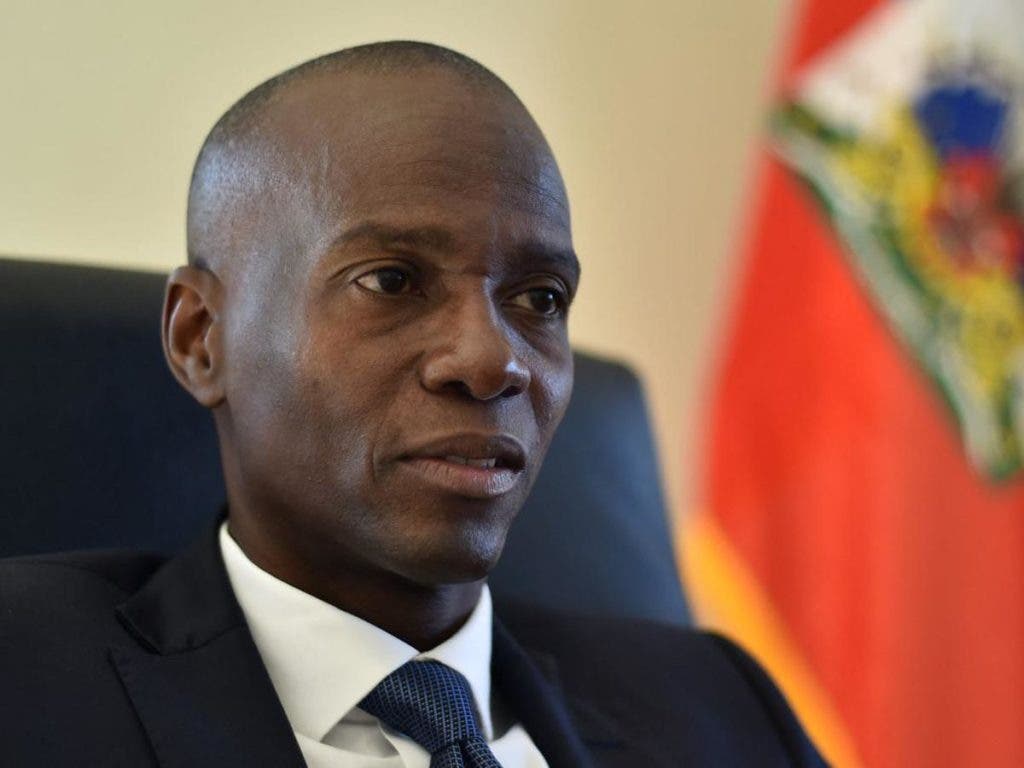The subrogation judge’s injunction for Administrative Litigation Alejandro Recarey reopened a debate that had already been settled in the Justice. In May 2021, the judge on the same matter, Pablo Gandini, had rejected the demand of a journalist from the Brecha Weekly who demanded that he be informed about the State contracts with the pharmaceutical companies that provided anticovid-19 vaccines, of which he had already more than 8.5 million doses were supplied. After a year and the health emergency having been lifted as a state of exception, Recarey makes this decision in light of an amparo process initiated by the lawyer Maximiliano Dentone. But who are the lawyers that force the Presidency to publish information that it keeps secret, justifying the confidentiality of the agreement?
Dentone studied at the Faculty of Law of the University of the Republic and was authorized to practice the profession on April 29, 2019. His most recognized performance was as a lawyer for the deputy of the Intransigent Radical Ecologist Party (PERI), César Vega, in the lawsuit he had against the Caras y Caretas journalist Leonardo Grille. Vega sued him for defamation as a result of comments that Grille had made on his program, Legitimate Defense, in which he criticized the deputy’s decision to bring “magnetized” people to Parliament. The legislator argued that it was due to the effect of the anticovid vaccine. In that case Grille ended up dismissed.
In addition, on December 21, 2021, he filed an administrative appeal for understanding the mandatory use of the mask in public schools to be unconstitutional. This was disclosed by former presidential candidate Gustavo Salle Lorier, who has also spoken out against anticovid-19 vaccines.
For his part, Judge Recarey is the head of the 9th Civil Law Court Shift, but in this case he officiates as a judge of the Administrative Litigation of 4° Turn before the license of Carlos Aguirre. With an extensive career, he worked on various cases of public relevance and had already spoken out on issues related to the pandemic.
On April 20, 2021 – barely beginning the vaccination process – he issued a decree justifying that attendance at trials was essential and forced all hearings to take place “in strict attendance.” “As is clear, the covid-19 crisis has favored policies that, promoted by large technology business corporations, are ordered to maximize massive connections to digital platforms. With the no less obvious consequence of increasing their profits and, more importantly, , of its potential for social control”, he expressed in one of the passages. Also, twice cited articles published in the magazine Extramuros, which had a skeptical position on the pandemic and anticovid-19 vaccines as its editorial line. The same magazine reported Recarey’s decree as an achievement.
Other rulings by Recarey and two questions from the court
The magistrate has already ruled against government leaders and against state agencies.
In 2019, he denounced the former Minister of Public Health Jorge Basso for contempt. As a civil judge, he had sentenced the MSP to buy a high-cost medicine. The deadline expired and Basso decided to miss a hearing to which he had been summoned to give explanations.
Earlier, on November 6, 2003, Recarey ordered the arrest “any type of work that alters the terrain of the facilities of the Infantry Battalion No. 13”, where a detention and torture center operated during the dictatorship, with the intention of “preventing disturbances by personnel dependent on both agencies,” according to a document report of the Secretary of Human Rights for the recent past of 2018. In their short stay in the case they testified before him more journalists, two people who had been detained in the 300 Carlos torture center, inside the Battalion 13 premises, and then Senator Rafael Michelini, who said that the body of 13 disappeared persons was on that property, including that of Quinteros. Recarey called for the ex-military to testify for the cause, and denounced Juan Carlos Blanco for very especially aggravated homicide.
However, the executive appealed the judge’s action in the cause for understanding that it rubbed against the Expiration Law, due to the ex-military called to testify. In 2010, Blanco was sentenced to 20 years in prison as co-author of the murder of Quinteros.
In 2014, he agreed with a group of 69 traffic inspectors who sued the Municipality of Montevideo, which at that time Ana Olivera commanded. That earned the mayor a loss of $6 million. “It is clear that the actors, for doing exactly the same work as other officials, received a lower salary,” the judge assessed at the time.
But politics was not the only influential group with whom Recarey came face to face. In 2020 he demanded the Argentine soccer player Ezequiel “Pocho” Lavezzi – who was one of the best paid in the world – to present the titles of his mansion in Punta del Este. A year later, he agreed with the Rivera Frontera Chico club, which requested his reinstatement in the Uruguayan Football Association, which rejected him due to unpaid debts.
She also interceded in a lawsuit between renowned journalists that took place in 2006 when the former director of the Gallery and current director of Inmujeres (Mides), Mónica Bottero, denounced the director of the supplement Qué Pasa of El País who at that time was Leonardo Haberkorn. The supplement had presented what the judge understood as a satire of his editorials, but which Bottero understood as a procedure liable to be sentenced for damages.
The last ruling with Recarey’s signature that aroused controversy was at the end of last year, when he refused to use the “gender perspective” in one of his cases. It was about some parents who claimed compensation from their son’s school for damages for “inappropriate sexual attitude, during an instructional practice in Physical Education class” for a global amount of $ 530 thousand and US $ 20 one thousand.
The plaintiffs requested to apply the provisions of the “Guide for the Judiciary on gender stereotypes and international standards on women’s rights.” However, Recarey affirmed that “in no way can this indication be followed” and pointed out that the victim’s version must always be complemented with other evidence.
In that sense, he believed that “the use of the term gender operates as a kind of legislative Trojan horse. All in order to smuggle purely ideological guidelines into the current legal system, and that become instruments of social struggle.
Criticisms from two appellate courts
In another 50 Recarey sentences relieved by The Observer, 30 were upheld by the appellate courts that reviewed them, eight were partially overturned, and 12 were totally overturned. In most of the overturned sentences, he had condemned the MSP or the National Resources Fund to finance high-cost medicines and the court understood that this was not in order.
In two appeals in which some of the parties requested Recarey’s recusal – that is, they believed he was not fit to continue with the trial – the court rejected him outright, although they criticized him.
One of these resources was analyzed in 2019 by the Civil Court of Appeals of 1° Turno, whose members were Tabaré Sosa, John Pérez and Álvaro Franca. The first two today are ministers of the Supreme Court of Justice, former president and president, respectively. At that time they rejected the possibility of recusing the judge, but they affirmed: “It is worth recognizing the existence of an unnecessary rhetorical load as well as a lack of caution in the legal qualifications and speculations that could well have been avoided by the magistrate concerned.aggravated by the use of some terms that are not very reconcilable with the balance and weighting that should govern the performance of any legal professional, extremes that could justify the request for removal of the owner of the Player, by generating subjective doubts about the equanimity of the decision maker in the case“.
In a similar case, but which occurred this year, the ministers of the same court of appeals, but now made up of Beatriz Venturini, Ana Rivas and Álvaro Messere, assessed: “Although the situation is complex, it is very clear that there was no correct control of
file, in particular, about who are and will be the parties in this procedure, which deals with a precautionary measure requested by a partner of a company, of intervention with displacement of authorities (…) So, the entire main file has been quite problematic, and the parties are bitterly opposed”.







